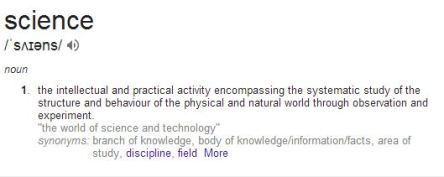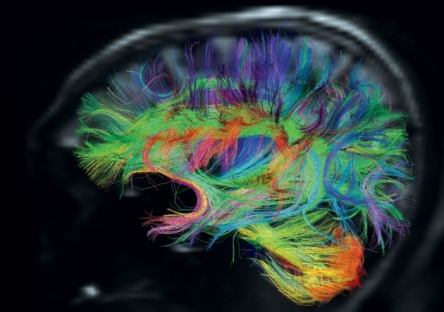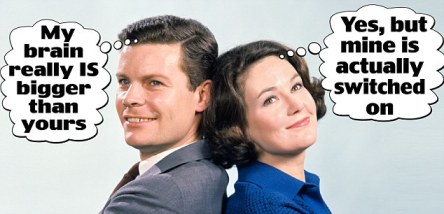“I don’t believe that consciousness is generated by the brain. I believe that the brain is more of a receiver of consciousness.”
― Graham Hancock
Ladies and gents, go get some paper towel because your mind is about to be blown.

Like this is big. I wrote a piece sort of in advance (mostly because I realized that my post was getting too long) that I planned on using this week. I came to some pretty big insights into the function of psychology and why we accept the flawed system and how the system is still incredibly useful. The level of insight I am feeling now relative to then is like the difference between a firecracker and the atomic bomb.
The Psyche
As I mentioned last week this week we got into the depth of what is psychology, and while last week I got caught up in justifying all the systems – the education system, the system of psychology, the system of science – I think it is important at this point to talk about what is the psyche? Or so Claude drew me back to. This very quickly developed into a debate of the brain versus… something else?? One student raised the concept of the soul as the psyche, the brain camp quickly fired back that no – everything is a function of the central nervous system (CNS), and just for fun, I threw in the grey area of something that, I believe, cannot be boiled down to a set of neurotransmitters and electrical impulses, neurons depolarizing while still refusing the concept of a soul that transcends our being.
I think at the time this was taken as I lie in the soul camp.
I don’t.
It sounds incredibly sad, and atheistic, and I want to make it clear that I am not out to question anyone’s religious beliefs, nor am I atheist – I was raised Catholic, but I have come to develop my own belief system, independent of any church. Which really I guess is atheism in the general public’s mind (which I argue shouldn’t be taken as a bad thing). Except I do believe in a higher power, something bigger than ourselves. I just don’t quite know what I expect this higher power to do. Some may argue that this sort of system is almost at complete odds with science – how can you believe religion when it defies all tenets of science? Answer – I can believe in the power and importance of science, while acknowledging that it hasn’t figured everything out yet, and there are some things it seems unable to figure out – there is still an explanation, but not everything needs to be explained.
So, all those qualifiers and asides… aside… why do I not hang out with the soul camp if I appeal to an area that science can never, in my mind, truly explain? Because I don’t believe that anything happens after death. When you die, I do not believe in reincarnation (though it creates a wonderful idea, an opportunity to repair your mistakes, find your “soul mate” whatever that actually means), I do not believe in some afterlife. When you die, people’s memories of you live on, if you’re famous, you may live on in textbooks, but eventually every trace of you is gone. When you die, everything that is you, dies too. All that is left is the memories of who you were.
Which suggests that I would find a better fit within the brain camp – if there is nothing intangible to continue on then everything must be housed in the brain.
No.
There is something that goes beyond the neurons, the connections alone are too vast to be coded by DNA, perhaps the environment takes over from there, but babies are born with a personality (or so we are told). At least they are born with a temperament, which evolves into personality which is supposedly unchangeable. So maybe personality is just the more describable version of temperament, ascribed only due to how we as a culture ascribes the behaviour. It is temperament once those around us have had sufficient experience with us to describe us on broader terms.
Call it what you will – Call it life force, call it your essence, your personality, your you-ness. I simply believe that there is something that goes beyond the brain, but that which is dependent on the vitality of our systems, and impacted by the activities of your brain. Two gears working together that require the same engine to function.
So I don’t seem to have blown any minds yet. Heck I don’t even appear to have come to any conclusion other than I don’t like options A or B, give me a new option. Stick with me – we have to build up to the mountain peak before you can experience the awe.

This is the screen shot for this video. Watch it. Watch all of them.
The idea of a continuum was raised, which I think fits beautifully with my desire to give a only semi-concrete answer to what is the psyche. I lie closer to the brain end, but barely past middle.
The point was raised that we are essentially big giant bundles of carbon. True. Somewhat depressing, but true nonetheless. So at what point did we decide that the soul exists? At one point in the arrangement of carbon did we decide that something more than the brain existed? We claim cats and dogs can’t have the same emotions we have, but they have the same brain structures – they too have an amygdala (the supposed seat of emotion in humans) so why not emotions? We assume they do not experience emotions by entirely subjective observations and assumptions. We don’t know they don’t think and feel, they communicate in a way that cannot be converted to any known language so we assume they don’t think. The anthropomorphism debate is probably better left alone for now – I raise it only to bolster the implied argument that the existence of anything other than the soul is incredibly arbitrary.
Perhaps it is the result of some evolutionary hat trick – the one that allowed us “higher thinking” – we at some point developed a brain structure that allowed us to meditate on the functions of our brain?
But if the brain is the end game why would it create a sort of separate state of awareness and experience. For example, we talked about colour being in your brain versus your experience of the colour and the objective firing pattern of neurons, your experiences associate with specific colours. At this point the wise ass joke was made when Claude asked if “redness” was in your brain, to which, “well yeah, it’s pretty bloody in there” was given as a response.
 So I arrive at the first major mind-blow of the night: Perhaps the mind was something that was invented to protect us from the terror of the unknown. In the same way, that I believe we create an afterlife because the concept that we will cease to exist is too much for us to handle, I realized that perhaps the mind was something I can believe in because without it we are powerless. If I accept that all that we are and do is because of a complex set of neurotransmitters and electrical impulses, then there essentially is nothing I can do to control anything. That is terrifying. We need to predict, in my mind, because we need to feel like we have some control, some ability to influence our environment. And I would argue that we cannot doubt that we can influence the environment. Or at least my theory has yet to be proven wrong. If I want everyone in Starbucks to start looking at me, I can say with reasonable certainty that standing on my chair and screaming at the top of my lungs will do the trick. I can “make” people look at me. I can control something. If my neurons tell me what to do, I can decide to do nothing. I am helpless, at the whim of the availability of neurotransmitters and neuron depolarization.
So I arrive at the first major mind-blow of the night: Perhaps the mind was something that was invented to protect us from the terror of the unknown. In the same way, that I believe we create an afterlife because the concept that we will cease to exist is too much for us to handle, I realized that perhaps the mind was something I can believe in because without it we are powerless. If I accept that all that we are and do is because of a complex set of neurotransmitters and electrical impulses, then there essentially is nothing I can do to control anything. That is terrifying. We need to predict, in my mind, because we need to feel like we have some control, some ability to influence our environment. And I would argue that we cannot doubt that we can influence the environment. Or at least my theory has yet to be proven wrong. If I want everyone in Starbucks to start looking at me, I can say with reasonable certainty that standing on my chair and screaming at the top of my lungs will do the trick. I can “make” people look at me. I can control something. If my neurons tell me what to do, I can decide to do nothing. I am helpless, at the whim of the availability of neurotransmitters and neuron depolarization.
In that sense perhaps the mind was a creation from before we could grasp the capacities of the human brain, before we had the technology to see the brain and all it’s power of computation. We need to know something about why we do what we do, we cannot accept our ignorance, yet the knowledge is too much for us to grasp. And yet the brain in its survival of the fittest goals would have us keep this knowledge to ourselves, but we don’t we share it and develop these every expanding extensions of our mind. As a great video from Jason Silva (seriously get more paper towel and go check him out on YouTube or TestTube Shots of Awe) pointed out – we are finding new ways to remove our intelligence from the confines of the human brain – create it in other substrates. The awe of human creation for me means that there has to be something else. We have to believe that there is something else, because to believe otherwise bursts the bubble on the philosophical question of “why am I here?”
Which is a powerful thought and realization for me, I was quite impressed with myself.  But then I realized, wait why would the brain, if it is so powerful, give off some of it’s control to another entity. Why would it create something that would allow us to question it? What would the use of such a system be? Which I suppose strengthens my conclusion that there must have always been this mind – and really who can argue it wasn’t. It is an essentially irrefutable argument. I choose to see it as a theory that has yet to be disproved. I just don’t know how it would be disproved.
But then I realized, wait why would the brain, if it is so powerful, give off some of it’s control to another entity. Why would it create something that would allow us to question it? What would the use of such a system be? Which I suppose strengthens my conclusion that there must have always been this mind – and really who can argue it wasn’t. It is an essentially irrefutable argument. I choose to see it as a theory that has yet to be disproved. I just don’t know how it would be disproved.
Or maybe the brain kids are right. I also entertained the possibility, that since the frontal cortex is praised as the epitome of higher thought, it is like a specific division of our brain that tells our brain how to interpret the stimuli? But perception and processing areas are all so spread out? Maybe we process, then send the info to a central analysis centre where we derive meaning from the processed input?
I will admit, I’m not really 100% on board with that explanation, doesn’t entirely fit with my concepts of the nature of experience and reflecting on the experiences.
Psychology as a Science?
Psychology is awash with terms that describe something that in no way can be measured, which has lead to two camps. The first accepts that we are using subjective or proximal indicators, but that allows things to go unexplained and allows for potential error. The second camp, argues that by studying the brain we can explain everything in concrete, objective terms – except it can’t explain everything, or at least the general population will never accept all of its explanations entirely. And it tries to ignore the fact that there are vast variations between individuals on the activity of the brain – it tries to deny the frustration of the individual in science. They can’t pin down the science enough to make it any more useful in explaining behaviour and creating useful generalities than the first camp. But oh, it’s science, it is measuring something much more concrete and objective.
I prefer to take the sampler tray, and admit that some things neurosciences can explain – there are certain correlates between behaviour and brain activity. But this boggles my mind – in psychology we talk all the time about how correlation does not indicate causation, and yet the brain campers, on the basis of correlations seem to be suggesting that the brain activity precedes and creates the experiences of say love.
 Apparently correlation=causation is the kind of stuff they accept in “science,” sweet, rigorous, careful, science.
Apparently correlation=causation is the kind of stuff they accept in “science,” sweet, rigorous, careful, science.
So let’s return briefly to what is science?
- the testing and validating of our generalities (in which case psychology is a science)
- strict standards for measurement and evaluation of data (which is somewhat arbitrary – each field has it’s own standards for how likely or how frequently the null must be voided )
- convincing everyone else that you are right (in which case arguably English essays are a sort of research report)
I took Claude’s advice and asked a science major the answer:
“Error bars – each field accepts progressively larger error bars, biology has the biggest error bars that should be accepted, psychology as a field accepts too big an error bar”
Doesn’t seem like a very scienc-y answer to me. And at any rate, the pharmacologists can never state anything for certain either, if the issue is that psychology is simply more accepting of the human condition, and the knowledge that we can know nothing, then the argument of psychology not being a science is pretty lame.
So I went to the chemistry building to find someone to give me an answer, all the doors were closed. Will continue that mission later
Google told me:

Good answer Google

Thanks wikipedia
The Hard Problem

So you’re telling me, that you use what proves you wrong as proof that you are right?
Simply put, the Hard Problem (an idea I already had, now I knew the name) asks how can the brain activity explain experience? How can the depolarization of neurons explain how we experience things?
Theoretically neurons should react the same way to the same stimulus, but they don’t. So science argues that people have different sensitivities. So science uses the inherent individuality of it’s subject matter to explain the generalities of it’s subject matter.
Building on this, it was raised by Claude tonight, that you cannot put a brain up to a painting and have it communicate an experience. To which I raised a mental point – but we can trigger hallucinations by stimulating neurons? Which somewhat bolsters the idea that maybe we are just a hot mess of neurons, and we’re back at the idea that we created the idea of the mind, because the idea that this is the case, is too much. Like the concept of mortality is too much so we have created an afterlife, and a religion that promises a sort of immortality.
But if the brain is responsible (assuming an evolutionary perspective) for protecting us from harm, why did the capacity for such complex and harmful emotions come up – why would it create the possibility of love, when with this also comes the possibility of deep heart-wrenching heartbreak and loss. Why would it allow us to feel sorrow and rage?
Ultimate point it comes down to for me – we cannot know for sure what does and does not exist. The concept of the mind, appears to be somewhat like religion – it cannot really be disproved, because it cannot be separated from it’s opponent – the brain. There is no way of knowing for certain.
Expanding once more on this – the brain perceives itself – thus perception is inherently biased, both the brain and the mind become hypotheses, that only in death can be proved or disproved. Once we die, so does the brain – it ceases to exist. What makes it the possible source of intelligence, thought, and you-ness is no longer functioning. It cannot exist.
To bolster this view is the concept of mental illness. Science has not found a way to diagnose someone of, say depression, or eating disorders, exclusively on patterns of brain activity – because as mentioned above, it is too variable. The only thing neuroscience can diagnose is the dementias because they have an actual, biological cause, there is something concrete that you can observe. Things like depression are diagnosed not on the presence of some brain chemistry, it is diagnosed based on the feelings, and yes to a degree the somatic symptoms, but the feelings are required, the physical symptoms are considered to be side effects in a sense of depression.
A brain scan cannot capture all the thoughts and worries an individual has. It cannot show or tell anything. It knows nothing beyond the electrical signals, and it doesn’t even fully understand those.

This is truly a thing of beauty
taken from here
BAM! Another mind explosion.
Emotions and such phenomena as the placebo effect were discussed tonight as biological – but then why do the drugs that treat depression not act as quickly as the placebo effect? Why have we evolved a need for these drugs? Perhaps if evolution had its way there would be no treatment, those whose brain chemistry or neural pathways were improperly assembled would die off. Which sounds callous. But I mean it in the nicest possible way – I raise it to point out that we have found a way around the problems of our brain. Has our brain manufactured them? Maybe. That’s something I cannot resolve. Going back to emotions – they can change on a dime. I know the speed at which the brain can process information, it is truly astounding, but how do emotions arise? We know where emotions are located, why we experience things such as fear, but not how they are created. Is it that we do not have the technology yet to discover this? Maybe. After all we used to believe the heart to be the seat of the soul – the site of thought and emotion, we no have demoted the heart to a pumping position, and went to the higher ups 😉 hehehe.
Perhaps one day science will find a way to disprove the theory of the mind, but until then, I will believe in this sort of consciousness, me-ness, thought bank, that is beyond the power of my genes and neurons.
What is the psyche that psychology is after?
It is the sum of the powers of the brain, and the attempt at understanding that which goes beyond the brain. The human experience. Call it a soul, call it consciousness, or you-ness, call it flipenflagen – there is something that science cannot explain yet, and until it can, if it can, there has to be something beyond the neurons.
A cogent explanation can be found from Shots of Awe, discussing singularity- Sylva argues that “religious myths reflect our yearnings to transcend our limits.” A way to deal with the fact that “with our minds we can ponder the infinite, yet we are housed in these heart pumping, breath gasping, decaying body.” Check it out here.

I found this from Dishing It Up Daily, but I was unable to track down the original source, which appears to be a tumblr account know-knowledge?
Either way add to this that maps of the internet look like the same maps of the universe and neurons and you can see how connected these concepts and perceptions are – how the internet is an expansion on our own minds, one that has gone beyond the capacity of any one mind
So what is psychology? It is the study of everything man can and cannot know, attempting to converge the two into one coherent understanding of the universe, man, and reality. It is both the study of the concrete and measurable brain activity and behaviours, and the study of the unknowable state of the mental world of the individual. Attempting to understand how the two converge into one being.
“Man is literally split in two: he has an awareness of his own splendid uniqueness in that he sticks out of nature with a towering majesty, and yet he goes back into the ground a few feet in order blindly and dumbly to rot and disappear forever.”
― Ernest Becker
 Of course not.
Of course not.



 In most of the “pure sciences” – chemistry and physics – you are dealing with inanimate objects with no will or growth on their own. But I don’t recall there ever being a discussion of the null hypothesis, I remember taking measurements to calculate error – but the error measurements didn’t assume confounds, it affirmed that either you did something wrong or the scale or PCR or whatever other science machine wasn’t working properly. For example, you compare the mass you DID get versus the theoretical amount you SHOULD HAVE gotten. When you calculate the error it is based on a theory, which either was thought up almost out of thin air, or was based on other potentially flawed measurements. Thus the theoretical answer (based on either a theory/idea or a potentially flawed answer) is used to judge the accuracy of another lab experiment. Yet the point of comparison may be no more accurate.
In most of the “pure sciences” – chemistry and physics – you are dealing with inanimate objects with no will or growth on their own. But I don’t recall there ever being a discussion of the null hypothesis, I remember taking measurements to calculate error – but the error measurements didn’t assume confounds, it affirmed that either you did something wrong or the scale or PCR or whatever other science machine wasn’t working properly. For example, you compare the mass you DID get versus the theoretical amount you SHOULD HAVE gotten. When you calculate the error it is based on a theory, which either was thought up almost out of thin air, or was based on other potentially flawed measurements. Thus the theoretical answer (based on either a theory/idea or a potentially flawed answer) is used to judge the accuracy of another lab experiment. Yet the point of comparison may be no more accurate.












